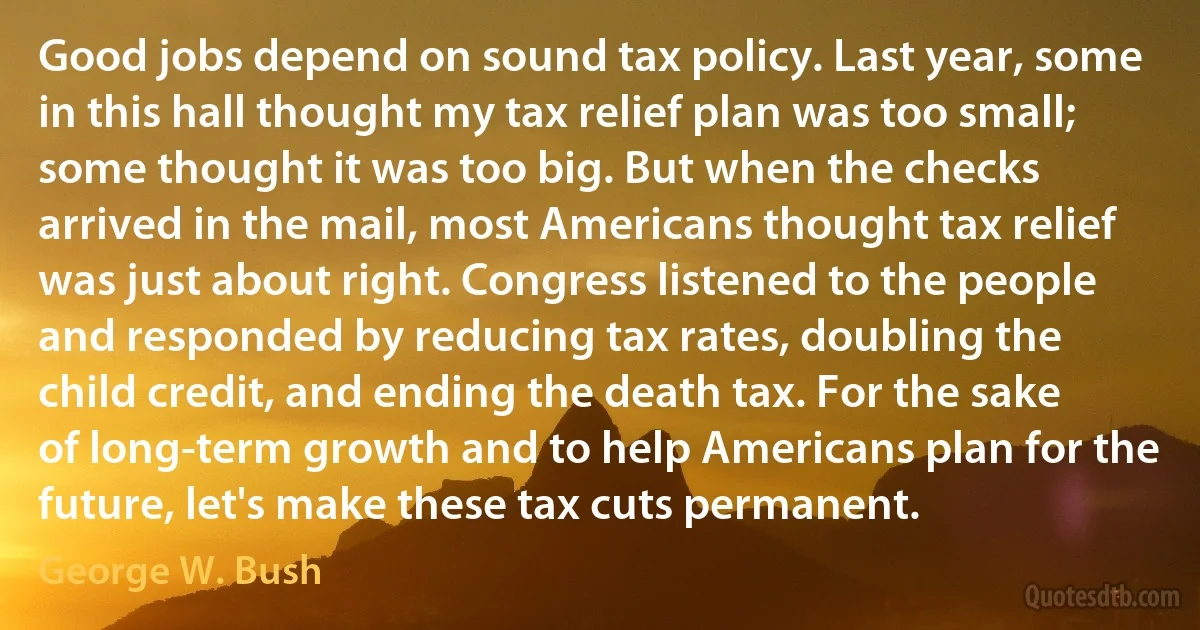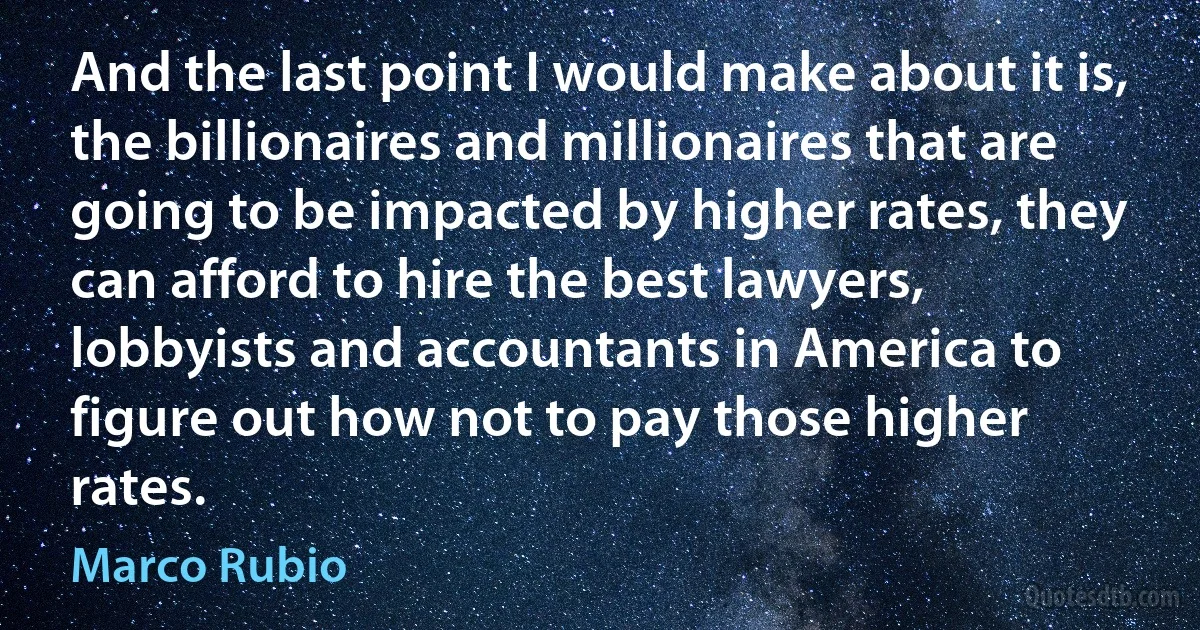Rates Quotes - page 5
We're in a bubble. We have artificially low interest rates. We have a stock market that, frankly, has been good to me, but I still hate to see what's happening. We have a stock market that is so bloated. Be careful of a bubble because what you've seen in the past might be small potatoes compared to what happens. So be very, very careful.

Donald Trump
We assume...that the banking system must be prepared to expand (or contract) the total supply of money to the extent necessary to prevent any scarcity (or plenty) of funds in the capital market which may be induced by any other disturbing factor, from causing a rise (or fall) in interest rates.

James Meade
[Central banks might have to intervene to counter "perverse" or "grossly excessive" speculation. ] By such means, the monetary authorities can attempt to make the market for foreign exchange approximate toward what it would have been if there had been free competitive speculation with correct foresight of future movements. In this case all that the authorities have to do is to anticipate more correctly than private speculators the future course of exchange rates. And in so far as they do so they will make a profit at the expense of the private speculator.

James Meade
When the time-table is so arranged as to call for speed nearly equal to the full capacity of the engine, it is very obvious that the risks of failure in making time, must be much greater than at reduced rates, and when they do occur, the efforts made to gain time must be correspondingly greater and uncertain. A train whose prescribed rate of speed is thirty miles per hour, having lost five minutes of time, and being required to gain it, in order to meet and pass an opposing train at a station ten miles distant, must necessarily increase its speed to forty miles an hour; and a train whose rate of speed is 40 miles per hour, under similar circumstances, must increase its speed to 60 miles per hour.

Daniel McCallum
One needs a complex package of policies and, as we always stress, structural reforms come first, because many of the problems of the euro area are structural. And I'm sure that's also the biggest fear for the Governing Council as a whole. We discussed the possibility of negative deposit rates, but our objective is maintaining price stability.

Mario Draghi
Microeconomics, including the study of individual choice and of group choice in market and nonmarket processes, has generally been considered a field science as distinct from an experimental science. Hence microeconomics has sometimes been classified as "non-experimental" and closer methodologically to meteorology and astronomy than to physics and experimental psychology (Marschak, 1950, p. 3; Samuelson, 1973, p. 7). But the question of using experimental or nonexperimental techniques is largely a matter of cost, and generally the cost of conducting the most ambitious and informative experiments in astronomy, meteorology, and economics varies from prohibitive down to considerable. The cost of experimenting with different solar system planetary arrangements, different atmospheric conditions, and different national unemployment rates, each under suitable controls, must be regarded as prohibitive.

Vernon L. Smith
The central idea is that government fiscal policy, its spending and taxing, its borrowing and repayment of loans, its issue of new money and withdrawal of money, shall be undertaken with an eye only to the results of these actions on the economy and not to any established traditional doctrine what is sound and what is unsound ...Government should adjust its rates of expenditure and taxation such that total spending is neither more or less than that which is sufficient to purchase the full employment level of output at current prices. If this means there is deficit, greater borrowing, "printing money," etc., then these things in themselves are neither good or bad, they are simply the means to the desired ends of full employment and price stability.

Abba Lerner
We shall increase income tax on the better off so that we can help the hundreds of thousands of families now tangled helplessly in the poverty trap by raising the tax threshold and introducing reduced rates of tax for those at the bottom of the ladder. I warn you, there are going to be howls of anguish from the rich. But before you cheer too loudly let me warn you that a lot of you will pay extra taxes too.

Denis Healey
Undoubtedly, looking back, we nearly all allowed ourselves, for decades, to be frozen into rates of personal taxation which were ludicrously high...That frozen framework has been decisively cracked, not only by the prescripts of Chancellors but in the expectations of the people. It is one of the things for which the Government deserve credit...However, even beneficial revolutions have a strong tendency to breed their own excesses. There is now a real danger of the conventional wisdom about taxation, public expenditure and the duty of the state in relation to the distribution of rewards, swinging much too far in the opposite direction...I put in a strong reservation against the view, gaining ground a little dangerously I think, that the supreme duty of statesmanship is to reduce taxation.

Roy Jenkins



